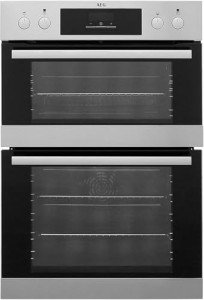The Little-Known Benefits Of Bulit-In Ovens
The Ultimate Guide to Built-In Ovens: Enhancing Your Culinary Experience
Built-in ovens have ended up being a staple in modern cooking areas, catering to the progressing needs of both amateur and expert chefs. built under electric oven and hob packages are designed to flawlessly incorporate with kitchen cabinetry, using aesthetic appeal while maximizing area and performance in the kitchen. This thorough guide explores the advantages, types, features, and upkeep of built-in ovens, supplying readers with the essential understanding to make an informed purchase.
What is a Built-In Oven?
A built-in oven is an oven that is installed straight into the kitchen cabinets for a structured appearance. Unlike freestanding models, which can be moved and repositioned, built-in ovens are normally embedded within the kitchen layout, making them a permanent component. These ovens can be found in numerous styles and sizes, enabling property owners to customize their kitchen area to fit their private design and cooking needs.
Advantages of Built-In Ovens
1. Aesthetics
Built-in ovens offer an advanced finish to kitchen designs. russell hobbs built under double oven up with cabinetry, producing a seamless look that enhances the general appearance of the kitchen.
2. Space Efficiency
Designed to save area, built-in ovens can be positioned at eye level, permitting chefs to monitor their dishes without bending down. They can also be stacked with other appliances, offering extra space for cooking.
3. Advanced Features
Numerous built-in ovens come geared up with advanced innovation, such as:
- Smart controls permitting remote operation through mobile apps
- Multi-function cooking choices (e.g., convection, steam, or air frying)
- Self-cleaning abilities for effortless maintenance
- Precise temperature controls for consistent baking results
4. Increased Property Value
Modern built-in ovens can boost the value of a home. Potential buyers often appreciate the streamlined appearance and integrated functions of a built-in design, making it an appealing selling point.
Kinds Of Built-In Ovens
Built-in ovens can be found in various types that deal with various cooking strategies and choices. The primary classifications include:
1. Wall Ovens
Wall ovens are installed on walls, maximizing floor space and allowing ease of use. They can be single or double ovens, with double ovens providing more cooking capacity for big meals.
2. Microwave Ovens
Built-in microwave are developed to mix seamlessly with cabinets. They can save counter space and are often integrated with wall ovens for a complete kitchen setup.
3. Steam Ovens
Steam ovens prepare food utilizing steam, retaining more nutrients and flavors. They are ideal for health-conscious cooks wanting to prepare healthy meals while maximizing taste.
4. Mix Ovens
Mix ovens integrate microwave technology with conventional oven functions, permitting versatile cooking choices. They enable users to bake, roast, and even steam food, providing chefs more flexibility.
Table: Comparison of Built-In Ovens
Feature
Wall Oven
Microwave Oven
Steam Oven
Mix Oven
Cooking Method
Baking/roasting
Heating/cooking
Steaming
Baking/steaming
Installation Style
Wall-mounted
Built-in
Wall-mounted
Built-in
Cooking Capacity
Varies (single/double)
Limited
Moderate
Moderate
Price Range
Higher
Moderate
Moderate
Greater
Energy Efficiency
High
Moderate
High
Moderate
Vital Features to Look for in Built-In Ovens
When choosing a built-in oven, several features should be thought about to ensure a practical cooking experience:
Size: Measure your space before acquiring to guarantee the oven fits perfectly within your cabinetry.
Capability: Consider the oven capacity based on your cooking routines and family size.
Control Options: Look for easy to use controls, digital display screens, and clever innovation for benefit.
Cleaning Mechanism: Opt for self-cleaning choices or easy-to-clean surfaces to streamline upkeep.
Safety Features: Check for functions such as child locks, automatic shut-off, and cool-touch doors for included safety.
Upkeep Tips for Built-In Ovens
To extend the life of a built-in oven and ensure optimal performance, routine maintenance is necessary. Here are some pointers for keeping your oven in top condition:
Clean Regularly: Wipe down the exterior and interior after each use to prevent grime buildup. Utilize the self-cleaning function frequently if readily available.
Check Seals: Inspect the oven door seals regularly for wear and tear to maintain performance and prevent heat loss.
Usage Correct Utensils: Avoid using coarse scrubbers or extreme chemicals that might damage the oven's surface areas.
Adjust Temperature: Occasionally check and adjust the oven temperature level to make sure consistent cooking efficiency.
FAQs About Built-In Ovens
1. How do I choose the ideal size built-in oven?Procedure the readily available space in your cabinets and consider the cooking capacity you require based on your cooking habits.
2. Are built-in ovens more costly than freestanding ones?Usually, built-in ovens tend to be more expensive due to their custom-made installation and advanced features.
3. Can I change my freestanding oven with a built-in design?Yes, but it's essential to ensure that the area is appropriately adjusted or modified to accommodate a built-in oven.
4. Do built-in ovens require unique installation?Yes, built-in ovens usually require professional setup to ensure they are firmly fitted within kitchen cabinetry and effectively connected to electrical or gas sources.
5. What are the energy performance rankings for built-in ovens?Built-in ovens tend to have energy performance scores varying from A to A+++, depending upon the model and technology used.
Built-in ovens represent a combination of style, functionality, and convenience in today's cooking areas. With various types, functions, and maintenance requirements, property owners can pick an oven that satisfies their specific culinary requirements while boosting their kitchen's overall aesthetic. By comprehending the advantages and qualities of built-in ovens, one can make an informed choice that elevates their cooking experience and adds worth to their home. Whether baking, roasting, or steaming, built-in ovens function as important appliances that truly assist in forming cooking masterpieces.
